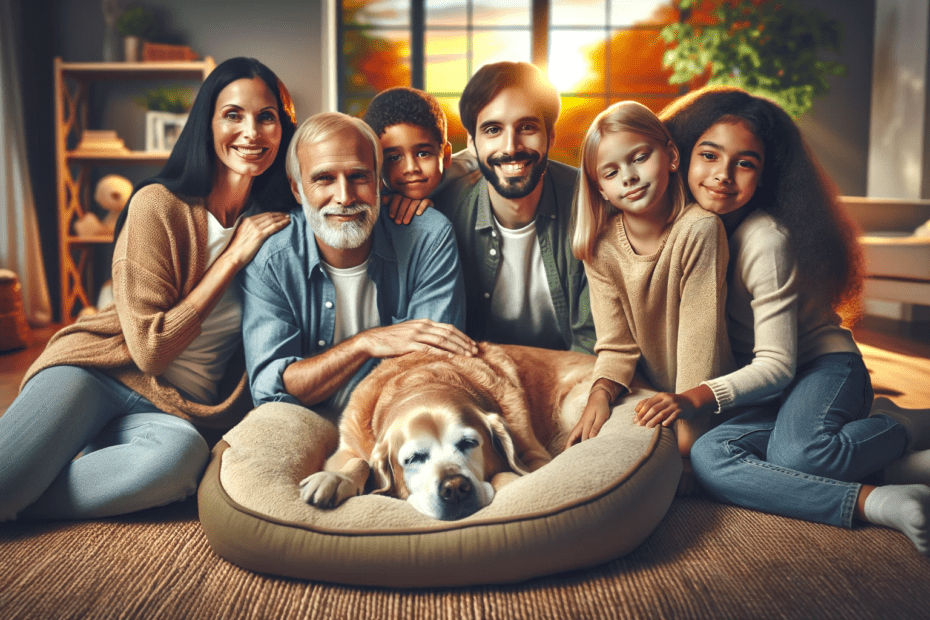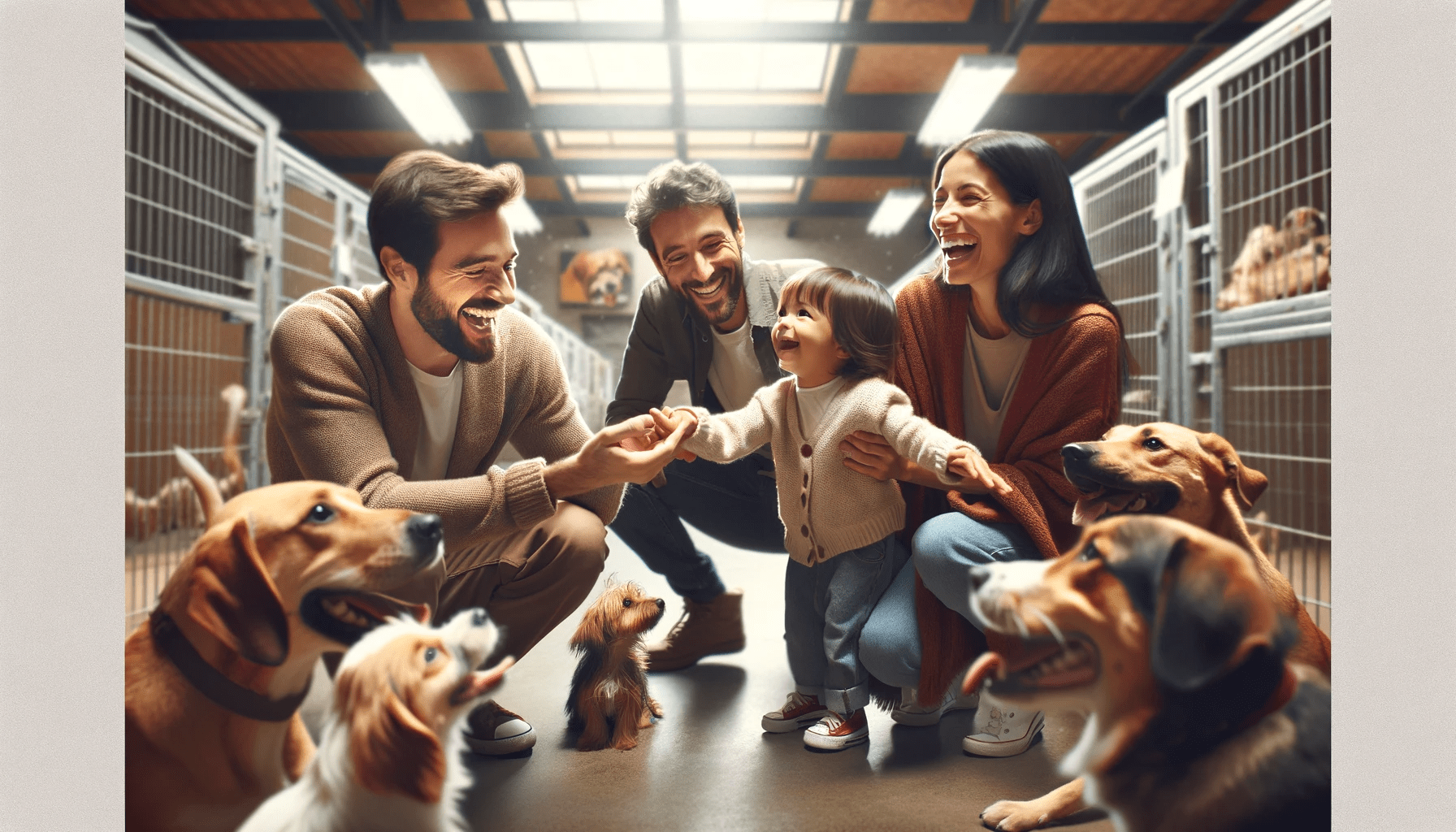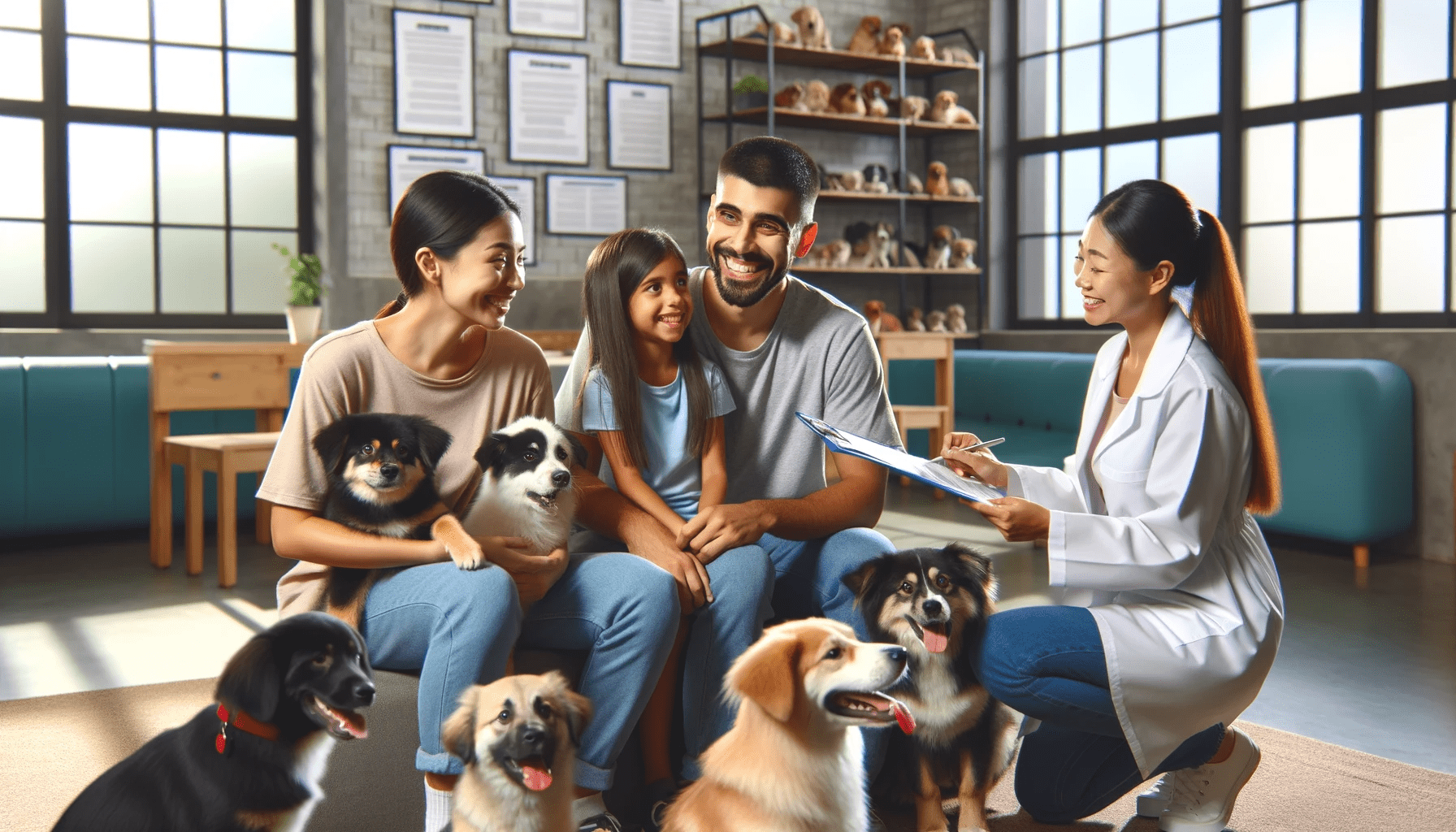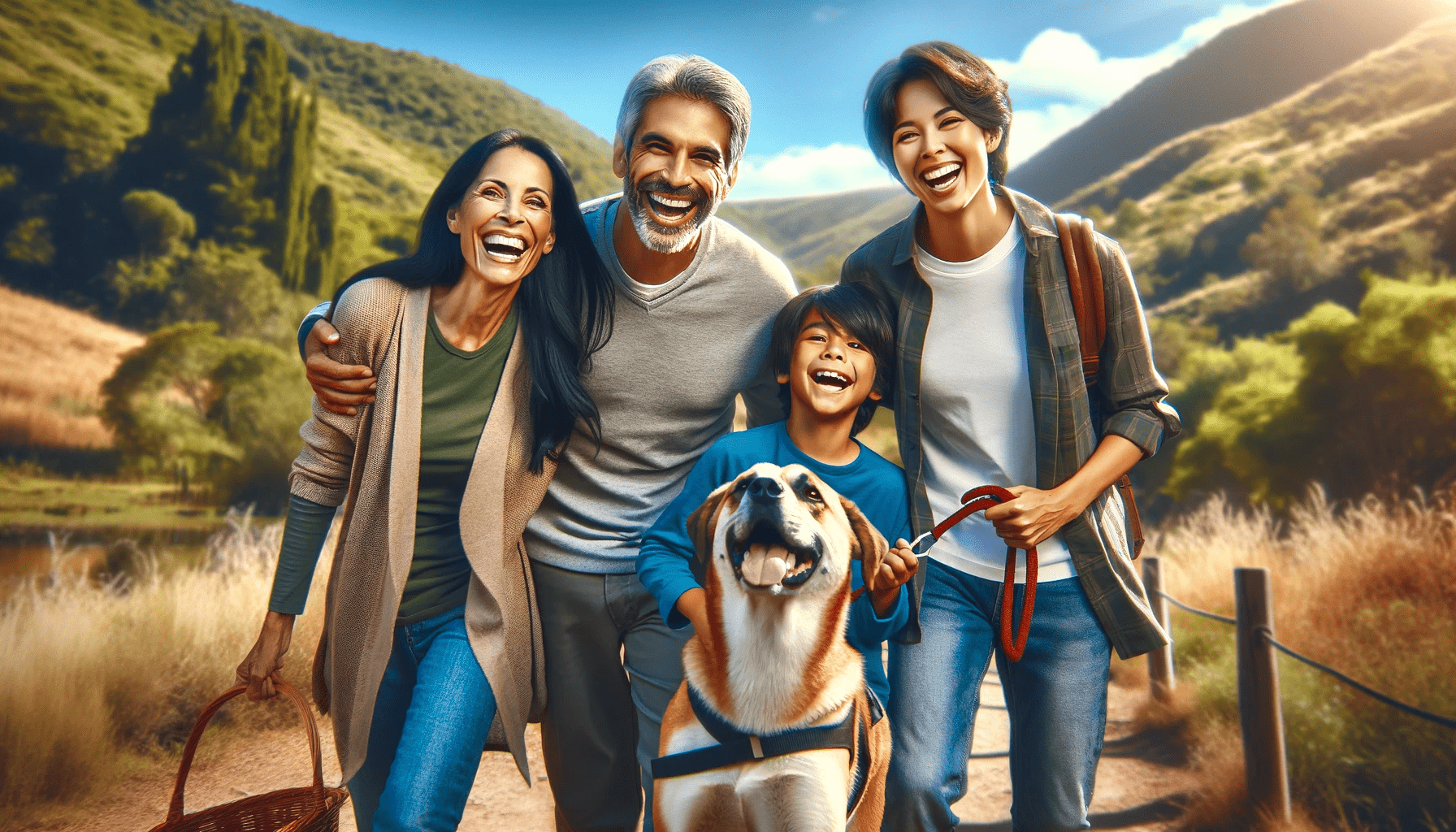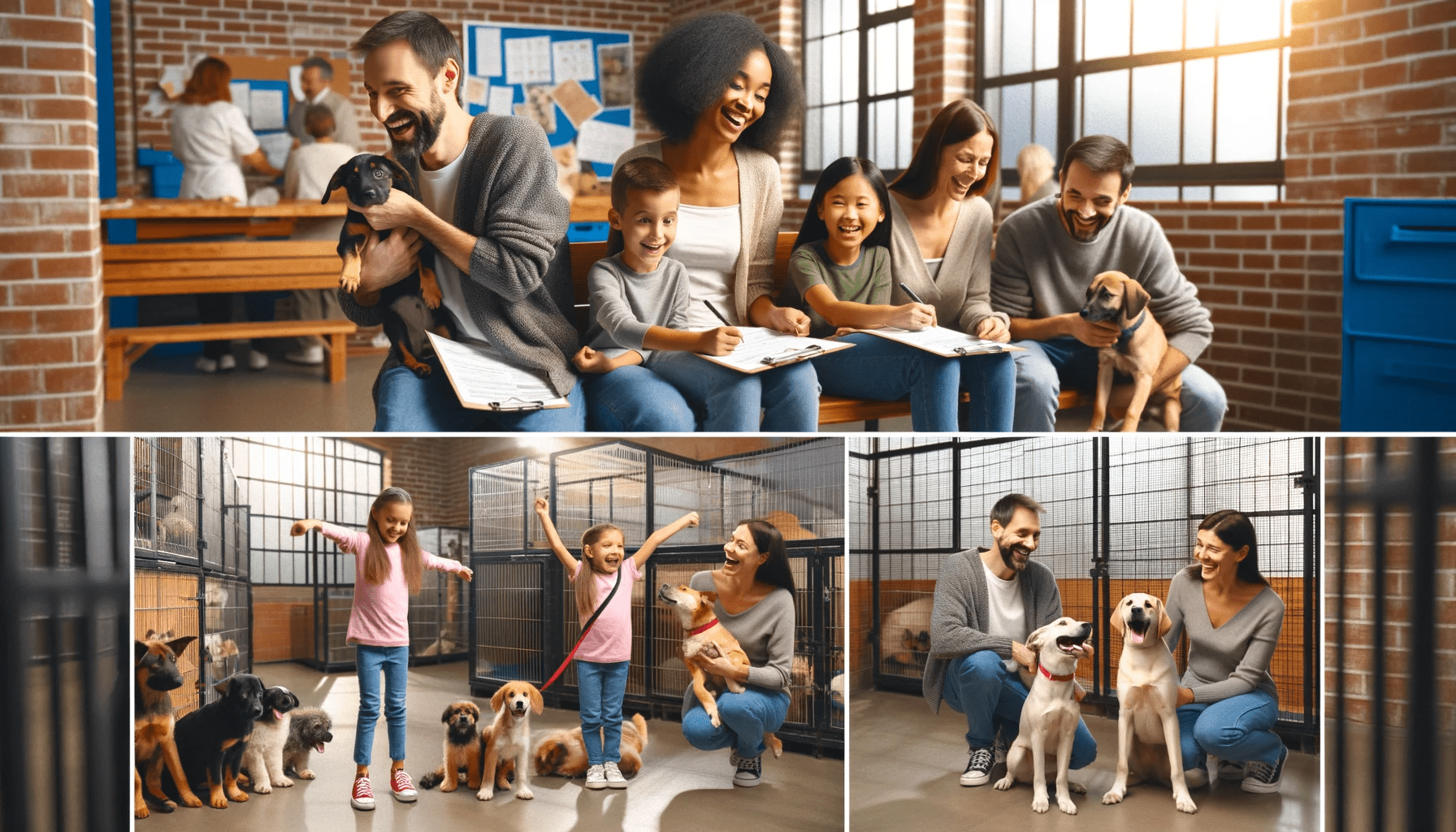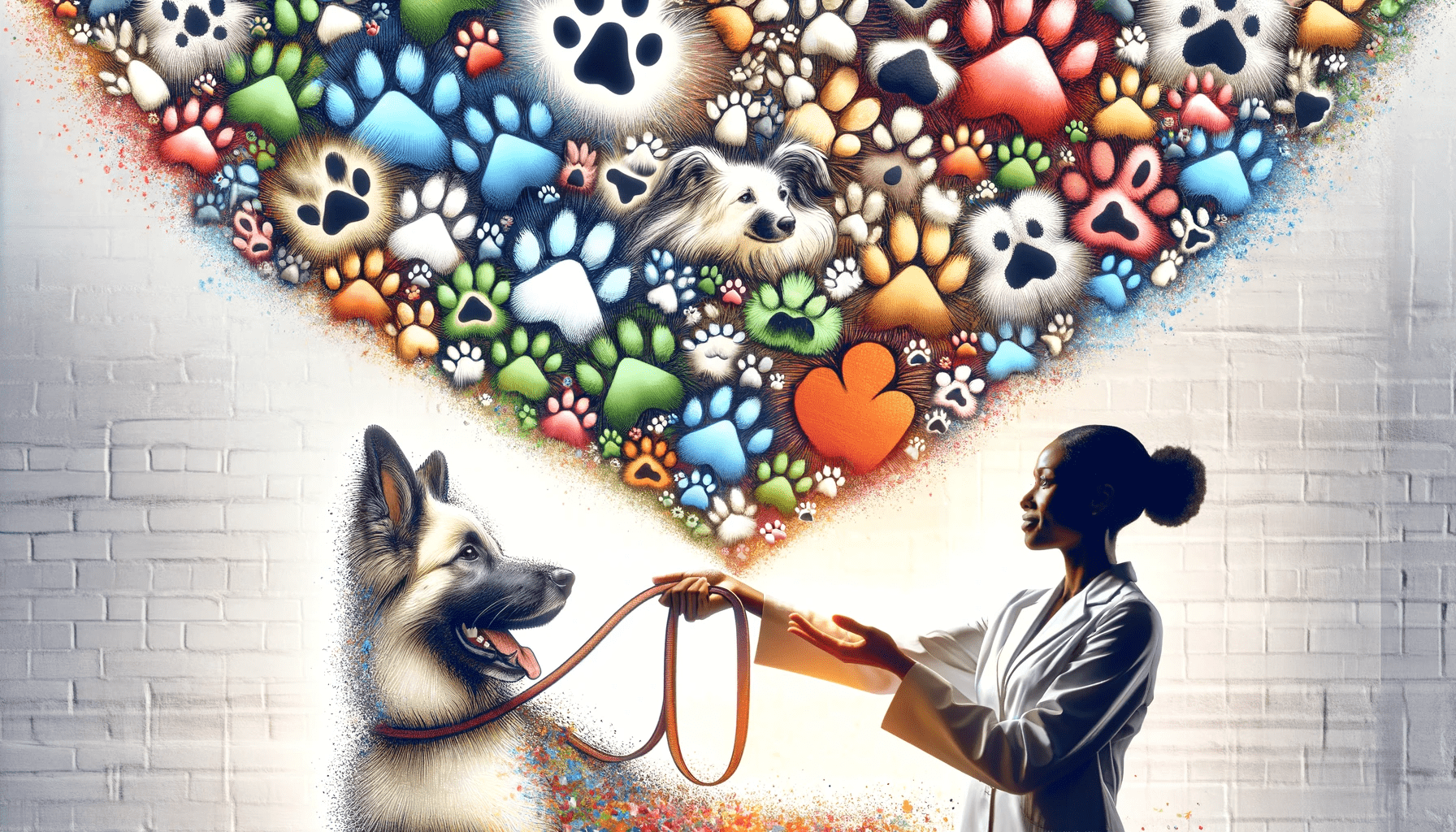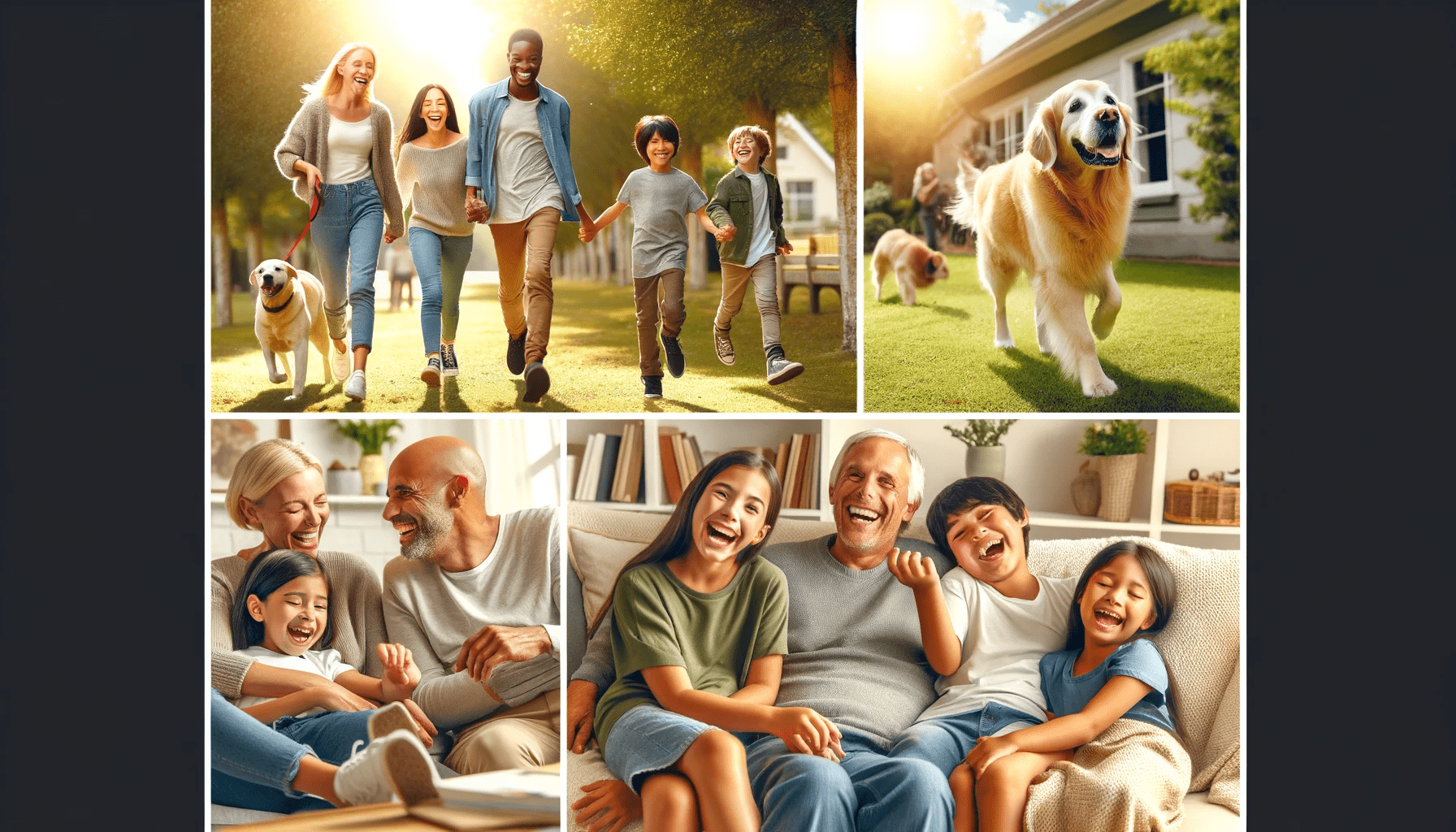Looking to add a furry friend to your family? Consider adopting an older dog! You may be surprised by the perks that come with giving a mature pup a loving home.
With decreased training needs and established behavior patterns, you'll be saved from the chaos of puppyhood. Plus, older dogs have lower energy levels and reduced destructive behavior.
They bring a calmness and stability to your household, seamlessly integrating into your family routine.
Get ready for a ready-made companion who will bring you joy and love.
Key Takeaways
- Older dogs require less training and have already learned basic commands
- They have lower energy levels and require less exercise compared to younger dogs
- Older dogs seamlessly integrate into family routines and provide stability
- Adopting an older dog promotes companionship, bonding, and emotional support
Decreased Training Needs
When adopting an older dog, you'll find that they require less training compared to a younger pup. One of the key benefits of bringing home an older canine companion is their decreased obedience needs. Unlike puppies who are full of energy and curiosity, older dogs have already gone through their rebellious phases and are more likely to be well-behaved. They've learned basic commands such as 'sit,' 'stay,' and 'come' and are generally more responsive to their owner's instructions.
Additionally, older dogs often require minimal housebreaking. Unlike puppies who haven't yet grasped the concept of potty training, older dogs have already been through this process. They're more likely to understand where to do their business and can adapt to their new home environment relatively quickly. This means less time spent cleaning up accidents and more time spent bonding with your new furry friend.
Furthermore, adopting an older dog can be a compassionate choice. Many older dogs end up in shelters due to unforeseen circumstances such as the passing of their previous owners or changes in living situations. By providing a loving home to an older dog, you're giving them a second chance at a happy and fulfilling life.
Established Behavior Patterns
As you welcome an older dog into your home, you'll appreciate their established behavior patterns. These furry companions have already developed their habits and temperaments, making it easier for you to understand and work with them. Here are some reasons why their established behavior patterns can be a perk of adopting an older dog:
- Established Habits: Older dogs have already formed their routines and habits, which means they're less likely to engage in destructive behaviors like chewing on furniture or having accidents indoors. You can expect them to have a set schedule for eating, sleeping, and going on walks, making it easier for you to plan your day around their needs.
- Predictable Temperament: Unlike puppies who are still learning the ropes, older dogs have a more predictable temperament. You can get a good sense of their personality and energy level during the adoption process, helping you choose a dog that aligns with your lifestyle and preferences. Whether you're looking for a calm and laid-back companion or an active and playful friend, an older dog's temperament is already established, allowing for a smoother transition into your home.
- Easier Training: While older dogs may require some training to adapt to their new environment, their established behavior patterns can make the process easier. They're more likely to have basic obedience skills and understand commands like 'sit' and 'stay.' With their previous life experiences, they tend to be more attentive and receptive to training, making it quicker and more effective.
Adopting an older dog comes with the advantage of their established habits and predictable temperament. These furry friends are ready to fit seamlessly into your life, bringing joy, companionship, and a sense of stability to your home.
Lower Energy Levels
Adopting an older dog brings the benefit of their lower energy levels. This means that they require lower maintenance and less exercise compared to younger dogs. Older dogs have already gone through their hyperactive puppy phase, so you can expect a calmer and more relaxed companion. This can be particularly beneficial for individuals or families who may not have the time or energy to keep up with the high exercise needs of younger dogs.
With lower energy levels, older dogs are generally more content with lounging around and enjoying a more relaxed lifestyle. They're more likely to be satisfied with shorter walks and play sessions, making them a great choice for people with a less active lifestyle or those with physical limitations. This doesn't mean that older dogs don't enjoy physical activity altogether. They still need regular exercise to maintain their physical and mental well-being, but their exercise requirements are usually more manageable and less demanding compared to younger dogs.
Adopting an older dog with lower energy levels can also be beneficial for individuals who live in apartments or have limited outdoor space. With their lower exercise needs, older dogs are often more adaptable to living in smaller spaces. They're generally more content with indoor activities and don't require as much space to run around and play.
Reduced Chewing and Destructive Behavior
Are you tired of dealing with chewed up furniture and destructive behavior in your dog? Adopting an older dog can be the solution you're looking for. Older dogs often have reduced destructive behavior, making them a great choice for those who want a well-behaved companion without the hassle of constant training.
Here are some reasons why older dogs exhibit reduced destructive behavior:
- Maturity: Older dogs have already gone through their puppy phase and have learned what's acceptable behavior. They're less likely to chew on furniture or destroy belongings.
- Training: Many older dogs have already received basic training. They understand commands like 'sit' and 'stay,' reducing the need for extensive training to correct destructive behavior.
- Experience: Older dogs have already learned from their past experiences. They know what's appropriate to chew on and what's not, decreasing the likelihood of destructive behavior.
By adopting an older dog, you can enjoy a more relaxed and peaceful home environment. With their reduced destructive behavior and decreased training needs, older dogs can be the perfect addition to your family.
Give an older dog a chance and see the love and companionship they can bring into your life.
Increased Calmness and Stability
You will notice that older dogs bring a sense of tranquility and stability to your home. One of the surprising perks of adopting an older dog is their increased calmness, which can greatly benefit your household. Unlike puppies or younger dogs, older dogs have already gone through their energetic stages and have settled into a more relaxed state. This increased relaxation can have a positive impact on your emotional well-being.
Older dogs tend to have a more predictable and steady temperament, making them ideal companions for individuals or families seeking a sense of stability. Their calm demeanor can help create a peaceful environment, reducing stress and promoting a sense of serenity. Additionally, their quieter nature can be particularly beneficial for those living in apartments or shared spaces.
The presence of an older dog can also provide emotional support and improve your overall well-being. Their gentle and nurturing nature can be incredibly comforting, especially during challenging times. Their unconditional love and companionship can help alleviate feelings of loneliness and anxiety, providing a sense of emotional stability and security.
Easier Integration Into a Family Routine
When it comes to integrating an older dog into your family routine, familiarity is key. Adopting an older dog means bringing in a companion who's likely experienced life in a home before, making the transition smoother for both of you.
With an established routine already in place, the dog can easily adapt to your family's schedule and expectations, promoting a sense of cohesion and harmony. Plus, there's typically less of an adjustment period required, allowing you to bond and build a loving relationship with your new furry friend more quickly.
Familiarity Breeds Smoother Integration
Bringing an older dog into your home allows for a smoother integration into your family routine. When you adopt an older dog, they're already familiar with the concept of living in a home and being part of a family. This familiarity can make the transition easier for both you and the dog, resulting in a faster adaptation to your family's routine.
Here are three reasons why familiarity breeds smoother integration:
- Established habits: Older dogs often come with established habits and behaviors, making it easier for them to fit into your daily routine.
- Lower energy levels: Older dogs tend to have lower energy levels, which means they may require less exercise and are more likely to adapt to your family's activity levels.
- Calm demeanor: Older dogs have typically outgrown their puppy phase, so they're often calmer and more relaxed, making it easier for them to settle into your home.
Established Routine Promotes Cohesion
With an established routine, integrating an older dog into your family becomes easier and promotes cohesion.
Having a set schedule benefits both you and your new furry companion. Dogs thrive on routine, as it provides them with a sense of stability and predictability. When you adopt an older dog, they may already be accustomed to certain routines, making the transition into your family seamless.
By incorporating your new dog into your established routine, you create a sense of belonging and make them feel like a valued member of the household. This promotes cohesion within the family unit and helps your dog feel secure and settled.
Additionally, a consistent routine allows you to provide your dog with the structure and stability they need, leading to a happier and more well-adjusted pet.
Less Adjustment Period Required
You'll quickly notice that adopting an older dog comes with the surprising perk of a significantly shorter adjustment period. Unlike puppies, older dogs have already learned the basics of living in a household, making it easier for them to integrate into your family routine.
Here are some reasons why this is the case:
- Decreased grooming requirements: Older dogs often require less grooming compared to younger ones. Their coats are usually fully developed and may not need as much maintenance, saving you time and effort.
- Potential health issues: While it's important to consider potential health issues when adopting an older dog, many of these concerns are already known and manageable. With proper care and regular veterinary check-ups, you can ensure your new furry friend stays healthy and happy.
- Adaptability: Older dogs are generally more adaptable and flexible. They're familiar with different environments and can adjust to new routines more easily, allowing them to settle into your family life quicker.
Ready-Made Companionship
When you adopt an older dog, you'll find yourself instantly forming a bond with them. Unlike puppies, they already have a developed personality and are ready to provide you with companionship right from the start.
With an older dog, you can skip the time-consuming and often frustrating process of puppy training, allowing you to focus on building a strong and loving relationship.
Additionally, older dogs tend to have lower energy levels, making them perfect for those who prefer a more relaxed and laid-back lifestyle.
Instant Bond Potential
As you spend more time with an older dog, you'll quickly develop a strong and lasting bond. Adopting an older dog can bring an instant connection that's hard to find with a younger pup. Here are some reasons why adopting an older dog can provide instant bond potential:
- Emotional Support: Older dogs often have a calm and soothing presence, which can be incredibly comforting. They have a way of understanding your emotions and offering support when you need it most.
- Shared Experiences: Older dogs have likely experienced a lot in their lives, and they can relate to your ups and downs. This shared history can create a deeper bond and a sense of understanding between you and your furry companion.
- Gratitude: Older dogs appreciate being given a second chance at a loving home. Their gratitude shines through in their affection and loyalty, making the bond between you even stronger.
With their instant connection and ability to provide emotional support, adopting an older dog can bring immense joy and companionship into your life.
Skip Puppy Training
Developing an instant bond with an older dog means you can skip the hassle of puppy training and enjoy ready-made companionship. Unlike puppies, older dogs usually come with basic training and socialization, making them ideal for those who want a companion without the time and effort required for puppy classes.
You won't have to deal with the challenges of potty training, teaching basic commands, or correcting destructive behaviors. Instead, you can focus on building a strong relationship with your new furry friend right from the start.
With an older dog, you'll have immediate companionship without the added stress of puppyhood. They already understand how to behave in a home environment, making the transition smoother and easier for both of you.
Lower Energy Levels
Enjoy the benefit of ready-made companionship with an older dog, who's lower energy levels compared to a puppy. Adopting an older dog means you'll have a furry friend who's typically lower maintenance and requires less exercise. Here are a few reasons why this can be a great advantage:
- Lower Maintenance: Older dogs generally require less grooming and are often already house-trained. This means less time spent on cleaning up accidents or dealing with the challenges of potty training.
- Less Exercise: Older dogs are content with shorter walks and more relaxed playtime. They don't require the same level of physical activity as puppies, making them a perfect choice for those with a more laid-back lifestyle or limited mobility.
- Calmer Demeanor: Older dogs have typically outgrown their mischievous puppy stage. They tend to be more settled, well-behaved, and less likely to chew on furniture or shoes.
Frequently Asked Questions
How Can Adopting an Older Dog Lead to Decreased Training Needs?
When you adopt an older dog, you'll be surprised to find that they often have decreased training needs. This is because they have already learned basic commands and are more settled in their behavior.
What Are Some Examples of Established Behavior Patterns in Older Dogs?
Older dogs have established behavior patterns, such as being calm and well-behaved indoors. They are often house trained, know basic commands, and have a lower energy level, making them great for first-time owners.
How Do Older Dogs Generally Have Lower Energy Levels Compared to Younger Dogs?
As dogs age, their energy levels tend to decrease, resulting in lower exercise needs. This can be a surprising perk for those seeking a more relaxed companion. Older dogs offer the perfect blend of senior companionship and calmness.
What Are Some Common Reasons for Reduced Chewing and Destructive Behavior in Older Dogs?
Reduced anxiety and improved obedience are common reasons for older dogs to have reduced chewing and destructive behavior. They have learned to be calmer and more well-behaved over time, making them a great choice for adoption.
How Does Adopting an Older Dog Contribute to Increased Calmness and Stability in a Household?
Adopting an older dog brings increased calmness and stability to your household. They provide increased companionship and emotional support. Their maturity and experience make them excellent companions for those seeking a more relaxed and peaceful environment.
Conclusion
In conclusion, adopting an older dog comes with a multitude of surprising perks. From decreased training needs and established behavior patterns to lower energy levels and reduced destructive behavior, older dogs offer a calm and stable presence in your home.
They integrate easily into your family routine, providing ready-made companionship. So, why wait? Choose the compassionate option and give an older dog a second chance at a loving home.
You won't be disappointed.
